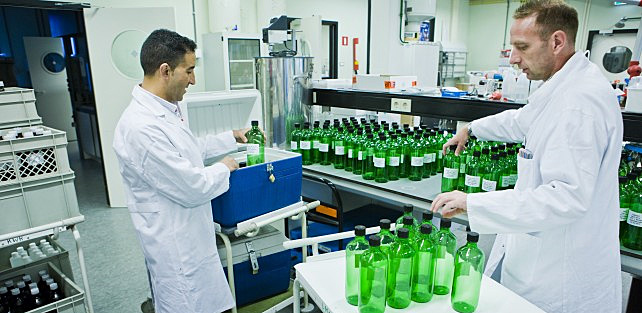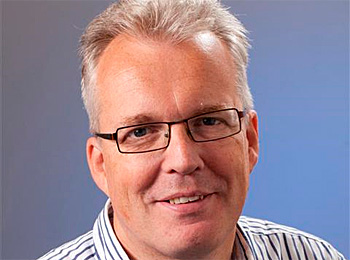KWR Watercycle Research Institute officially designated WHO Collaborating Centre on Water Quality and Health

KWR Watercycle Research Institute has become an official partner of the World Health Organization (WHO) and is designated WHO Collaborating Centre on Water Quality and Health. The duration of the partnership between KWR and WHO is 4 years.
The official designation as WHO Collaborating Centre ignifies a continuation of the working relationship that already existed between KWR and WHO in the field of microbial and chemical water safety and sanitation.
Reducing diarrhoea
KWR will now conduct existing and new activities that contribute to WHO’s objectives, and thus to world health, under the banner of 'WHO Collaborating Centre on Water Quality and Health'.
In this way, KWR contributes actively to reducing infant mortality caused by diarrhoea. KWR researchers accomplish this by testing water treatment systems, knowledge transfer and training.
.
Gertjan Medema, Chief Science Officer and
professor of Water & Health, heads the centre.
General activities
The partnership between KWR and WHO pursues the following activities:
● participate in the WHO Water Expert Group and contribute knowledge in the area of microbial safety of water
● conduct research into the application of microbial risk analysis and into controlling cyanobacteria in bathing water
● organise workshops, jointly with WHO and IWA, to stimulate knowledge exchange.
New activities
Specific activities that will be new within the framework of the Collaborating Centre:
● provide training in the area of Water Safety Plans and microbial water quality monitoring
● function as a specialty laboratory in the event of outbreaks of disease via water
● function as a test laboratory to verify the effectiveness of household water treatment systems in developing countries.
Household water treatment systems constitute an important contribution to reducing diarrhoea-related disease and mortality. WHO has selected KWR and the NSF in the US as test laboratories for these systems. KWR expects to be conducting the first tests this spring.
About KWR
KWR has conducted research into water quality and health – among others, with the Dutch water companies – and has built up a great deal of in-house expertise. KWR had previously already contributed to WHO recommendations, by providing its knowledge on microbial risk analysis, Water Safety Plans and the health effects of drinking water hardness.
In the years ahead, the translation of scientific knowledge for world water practice will remain central, so that we are now sowing the seeds for a new approach to water quality and regulation, which is also important to our clients.
About WHO collaborating centres
WHO collaborating centres are institutions such as research institutes, parts of universities or academies, which are designated by the Director-General to carry out activities in support of the Organization's programmes.
Currently there are over 800 WHO collaborating centres in over 80 Member States working with WHO on areas such as nursing, occupational health, communicable diseases, nutrition, mental health, chronic diseases and health technologies.
This news item was originally published on the website of KWR.
More information
KWR Watercycle Research Institute
WHO Collaborating Centre
Nieuwegein, the Netherlands
+31 30 60 69 653
www.kwrwater.nl



